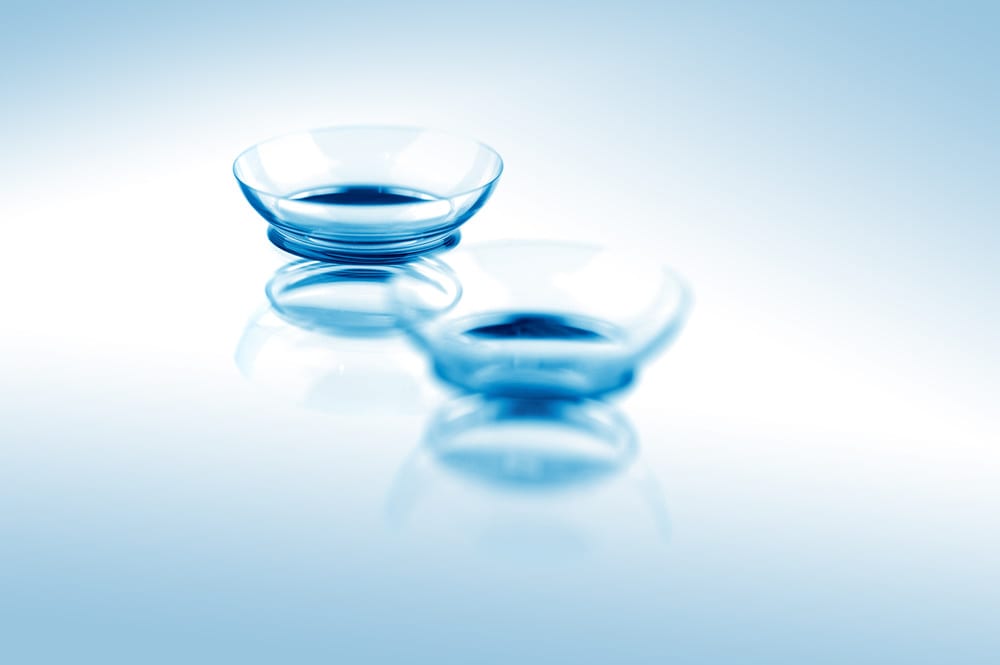When you decide to begin using contacts, your optometrist may ask if you would like daily or monthly contacts. Your answer will depend on your eye health and personal preferences, as there are several differences between the two types. Today we’re reviewing the pros and cons of daily vs. monthly contacts so that you can decide which option best fits your needs.
Daily vs. Monthly Contacts
Pros of Daily Contacts
Of course, one major perk of daily contacts is their convenience. Each day you will put in a fresh pair of contacts. And at night, you don’t need to worry about placing your contacts in a contact case with solution; instead, you simply discard the lenses (with clean hands) and go to bed. Since you only wear these contacts once, you don’t need to be concerned about bacteria or allergens building up on the contacts over time. Did you know that even if you clean your monthly lenses every day, it doesn’t always remove all of the gunk that can attach to your lenses?
For these reasons and more, many daily contact users find them to be convenient, comfortable, and sanitary.
Cons of Daily Contacts
Of course daily contacts also have a few drawbacks. For starters, their price tag holds some people back. Daily contacts are typically more expensive than monthly lenses, but this price gap varies depending on the brand and quality. Keep in mind that daily contacts don’t require the use of contact solution, so in some cases, the price between daily and monthly lenses can even out.
Another factor to consider before purchasing daily contacts is their impact on the environment. Since brands package each contact in its own individual plastic container for sanitary purposes, daily contacts create a lot of plastic waste. So if you choose to wear daily contact lenses, consider recycling the cases. In addition, it’s important to note that disposable lenses are typically made of silicone-hydrogel, which is not biodegradable.
Pros of Monthly Contacts
The primary benefit of monthly contacts is that they’re more affordable. And if you follow the care instructions provided by your optometrist, you shouldn’t need to worry about any sanitation issues. Although contact solution can rack up the cost of monthly contacts, you won’t need to pay for a year’s supply of contact solution upfront.
Monthly contacts also have some convenient perks. Some monthly contacts are designed for extended wear, which means you can sleep in them for 7 to 30 nights depending on the brand (source). However, if you choose extended-wear contacts, remember that it’s a good idea to give your eyes a break from contacts a few times a month (by wearing glasses for a day) and that you should never swim in your contacts.
Cons of Monthly Contacts
As we mentioned above, pollen, pollution, and bacteria can attach to your monthly lenses and stick around even if you clean them. So if you value sanitation over saving money, daily contacts might be the better choice for you. It can also be hard to remember how long you’ve been wearing your monthly contacts. Consider setting a monthly reminder on your phone to switch out your contacts so that you don’t forget. If your contacts start to feel uncomfortable, it could be a sign that it is time to swap them out for a new pair, even if you haven’t worn that pair for an entire month.
______
Are you still on the fence about choosing daily vs. monthly contacts? Talk to your optometrist for personalized advice. If you live near southwest Missouri, stop by Heffington’s. Since 1975, the Heffington family has been assisting the Springfield community with top-quality eye care and affordable eyeglasses and contacts. To learn more about our products and services, please get in touch with us online, send an e-mail to asktheexperts@heffingtons.com, or give us a call at 417-869-3937 (Optiland location) or 417-882-3937 (House of Vision location).

